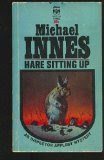
Earlier this year, I linked to
an article by Stephen Sartarelli about translating Andrea Camilleri into English.
I singled out Sartarelli's assessment that Camilleri:
"writes in a language that he has been the first to grace with literary status. An invented language, in the sense that, though made up of existing manners of speech and writing, it has never before been assembled in quite this fashion."
The article turns up as a preface to
Does the Night Smell the Same in Italy and in English Speaking Countries? An Essay on Translation: Camilleri in English by Emanuela Gutkowski.
The book is marred by a tendency to weigh down obvious statements with citations not just in footnotes but in the body of the text. If you can ignore that academic affectation, Gutkowski, a lecturer in English and translation studies at the University of Catania in Sicily, has interesting things to say to readers of Camilleri's Salvo Montalbano mysteries.

Her numerous quotations from Camilleri's
L'odore della notte and its translation as
The Smell of the Night (
The Scent of the Night for delicate UK readers) highlight the sorts of choices a translator must make when literal renderings would make no sense in the "reception" language. Thus "
Ho avuto una botta di culo incredibile, Mimi" becomes "I hit the goddamn jackpot, Mimi."
"The expression cannot be translated," Gutkowski writes, as the literal translation `I had a terrible ass-hit' appears to be nonsense." Sartarelli's choice is anything but nonsense, and he gets the tone just right.
Sartareli made wise choices as well in areas of linguistic untranslatablity, where Montalbano's distinctively Sicilian manipulations of grammar lack precise English equivalents. Such a locution, says, Gutkowski, is Montalbano's introduction of himself by "
Montalbano sono" (literally "Montalbano I am") rather than the standard "I am Montalbano" or "It's Montalbano."
His choice of words thus violates normal word order in the interest of a strange, self-conscious formality. Just try getting
that across in translation. Sartarelli's choice: "Montalbano the name." That, too, captures the tone, I'd say.
And then there's Catarella, Montalbano's thick, excitable, language-mangling colleague. I'd had ambivalent feelings about Sartarelli's rendering his speech in an English full of malapropisms and misspellings. Seeing his version beside the original, I appreciate the sensitivity he has to the strange, clanky sound of Catarella's speech.
"
Vossia di pirsona pirsonalmente è?" becomes "Is that you yourself in person?" which both preserves the sense and offers an elegant substitution (you/yourself) for Catarella's cracked alliteration.
=================
Camilleri makes artful use of clichés, mostly to show how they drive Montalbano nuts. I wrote about those clichés and what Sartarelli does with them
here.
© Peter Rozovsky 2009Labels: academic studies, Andrea Camilleri, crime fiction in translation, Emanuela Gutkowski, Italy, Salvo Montalbano, Stephen Sartarelli
 "It's the return of Peter Rozovsky's Noir at the Bar!
"It's the return of Peter Rozovsky's Noir at the Bar!





































